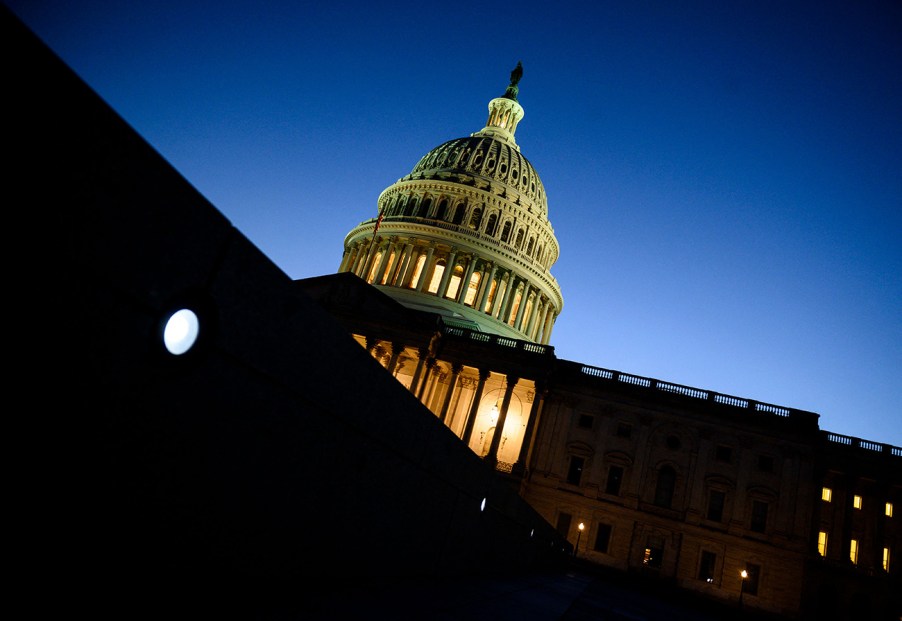
Eleven Republican Governors Oppose The New EV Tax Credits
The current administration wants to make it as easy as possible for United States citizens to replace their internal combustion cars with zero-emission electric vehicles. New legislation proposing increased EV tax credits is being pushed in Congress to encourage more people to buy EVs. However, some automakers and several Republicans are against those increased tax incentives.
This is why 11 Republican governors oppose the new EV tax credits

According to an Automotive News report, there are eleven Republican governors, all from states that house auto manufacturing plants, opposing the new legislation that would more than double the current EV tax credits. At face value, it may seem strange that public servants are against citizens being incentivized to buy zero-emission vehicles, but there is a very specific reason for their stance.
The Republican governors sent a letter to U.S. House and Senate members that said they are “deeply concerned that Congress is considering legislation that gives union labor a competitive advantage over non-union labor.”
The sticking point is that the new, increased EV tax credits would only apply to vehicles built in the United States by union labor. Most EVs would still qualify for the current $4,500 tax credit. However, the new proposal would make American-made, union-built EVs eligible for an additional $7,500 plus another $500 if the EVs batteries are assembled in the United States. Along with other incentives, the max tax credit could be as high as $12,500.
EVs built by non-union labor would not qualify for the new tax credits. Thus, customers would potentially shun those EVs in favor of those with the larger tax incentives.
The “big three” automakers Ford, General Motors, and Stellantis (Chrysler), would benefit the most from the legislation as all three of those automakers use union labor.
Those Republican governors believe the legislation is “discriminatory.” They also stated that “Congress should not enact proposals that favor vehicles produced by one work force over another, particularly when doing so dramatically limits consumer choice and undermines larger carbon emission reduction goals.”
Other automakers are speaking out against the legislation too

Republican governors are not the only interested parties that are against the proposed increased EV tax credits. Several automakers do not want to see this legislation passed. Specifically, foreign automakers with assembly plants located in the United States. Automakers such as Honda, Toyota, Volkswagen, Hyundai, Subaru, and others. None of those companies use union labor in their American assembly facilities.
Executives from those brands penned their own letter and sent it to U.S Speaker of the House Nancy Pelosi, urging her not to pass the EV tax credits legislation as it is currently written.
This is written by Ford/UAW lobbyists, as they make their electric car in Mexico. Not obvious how this serves American taxpayers. https://t.co/FUUXARHlby
— Elon Musk (@elonmusk) September 12, 2021
Tesla CEO Elon Musk is also against the legislation as Tesla’s employees are not unionized. Musk went as far as to say that the bill is authored by “Ford/UAW lobbyists.”
Even Canada is against the bill

If Republican governors and other automakers were not enough, members of the Canadian parliament are also wary of the proposed EV tax credits. Ford, General Motors, and Stellantis all have union factories in Canada; however, as mentioned previously, the legislation would only apply to EVs built in the United States.
That means those automakers would be less likely to build their EVs in Canada, which could cost Canadian jobs.
A source within the Canadian government even mentioned the possibility that Canada would challenge the legislation as it believes that the EV tax credits bill violates the United States-Mexico-Canada (USMCA) trade agreement.
If the authors of this legislation want it to pass as is, they will have a massive fight on their hands with attacks from multiple fronts. Will changes be made? Can compromises be reached? Jobs and economic interests hang in the balance.


